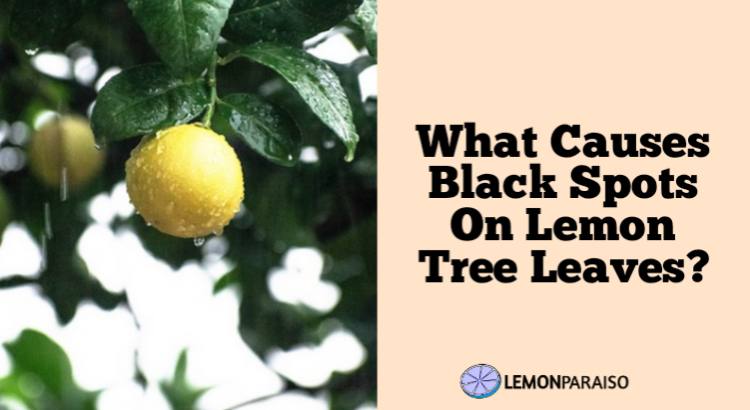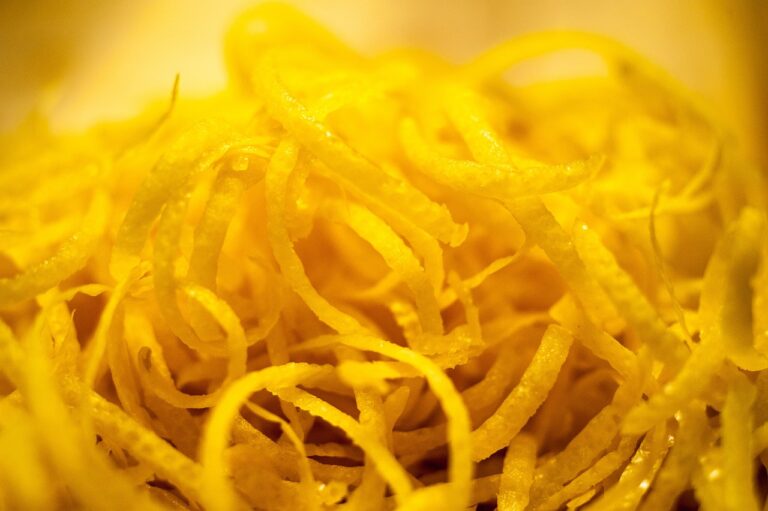Black Spots On Lemon Tree Leaves

Lemon trees (Citrus limon) are a popular choice for many home gardeners and commercial growers due to their vibrant, fragrant fruits and attractive foliage. However, even the hardiest of these citrus wonders can occasionally encounter challenges.
One such issue that many lemon tree enthusiasts might face is the appearance of black spots on their tree’s leaves. These unsightly blemishes can be a cause for concern, as they can potentially affect the health and productivity of the tree.
What Causes Black Spots On Lemon Tree Leaves?
Black spots on lemon tree leaves can be caused by several factors, including fungal infections, bacterial diseases, and pests. Among the most common culprits are the fungal pathogen Alternaria alternata, which causes Alternaria leaf spot, and the bacterial disease citrus canker.
Additionally, black spots may result from infestations of pests such as citrus blackfly or citrus scale insects, which produce honeydew that leads to the growth of sooty mold. Environmental factors, like poor air circulation and excessive humidity, can also contribute to the development of black spots, as they create conditions conducive to the proliferation of pathogens and pests.
Are Black Spots On Lemon Tree Leaves Harmful?
Black spots on lemon tree leaves can be harmful to the health and productivity of the tree. Depending on the underlying cause, these spots can lead to premature leaf drop, reduced photosynthesis, and weakened growth.
In severe cases, extensive defoliation can occur, causing the tree to become more susceptible to other diseases and pests. Furthermore, fruit yield and quality may be negatively impacted, as the tree’s overall health declines. It is essential to identify the cause of the black spots and address the issue promptly to mitigate potential damage and ensure the tree’s long-term health.
Can Black Spots On Lemon Tree Leaves Spread To Other Plants?
Black spots on lemon tree leaves can potentially spread to other plants, particularly if the cause is a contagious pathogen, such as a fungus or bacterium. These pathogens can be transmitted through rain splashes, wind, contaminated tools, and even insects.
Neighboring citrus plants are particularly susceptible to the spread of these diseases. However, other plant species may also be affected if they are susceptible to the same pathogens. To prevent the spread of black spots, it is crucial to employ proper sanitation and plant care practices, as well as isolate affected trees when necessary.
Is It Safe To Eat Lemons From A Tree With Black Spots On Its Leaves?
In most cases, it is safe to eat lemons from a tree with black spots on its leaves, provided that the fruit itself is not affected by the underlying issue causing the spots. Some diseases, like citrus canker, may cause lesions on the fruit, compromising its quality and making it unappetizing.
However, even in such cases, the fruit is generally considered safe for consumption, although the taste and texture may be negatively affected. It is advisable to thoroughly wash and inspect the fruit before consumption to ensure its safety and quality.
How Do I Treat Black Spots On Lemon Tree Leaves?
Treating black spots on lemon tree leaves involves addressing the underlying cause. If the issue is caused by a fungal or bacterial infection, you may need to apply appropriate fungicides or bactericides according to the manufacturer’s instructions.
For pest infestations, using insecticides or releasing beneficial insects, like ladybugs or lacewings, can help control the pest population. Additionally, proper cultural practices, such as pruning to improve air circulation, removing infected leaves, and avoiding overhead watering, can assist in managing the problem and preventing its recurrence.
How Can I Prevent Black Spots From Forming On My Lemon Tree Leaves?
Preventing black spots on lemon tree leaves involves employing good cultural practices and staying vigilant about potential issues. Regularly inspect your tree for early signs of disease or pest infestations and address problems promptly.
Ensure proper watering, fertilization, and pruning to promote tree health and vigor. Avoid overhead watering, as it can create a moist environment conducive to the development of fungal and bacterial diseases.
Finally, practice good sanitation by cleaning and disinfecting gardening tools, and removing fallen leaves and debris around the tree to minimize potential sources of infection.
Are There Any Natural Remedies For Black Spots On Lemon Tree Leaves?
Natural remedies for black spots on lemon tree leaves can be effective in treating and preventing certain issues. Neem oil, a natural fungicide and insecticide, can help control fungal infections and deter pests. Baking soda mixed with water and a few drops of mild soap can be used as a homemade fungicide to treat fungal diseases.
For pest control, introducing beneficial insects, such as ladybugs or lacewings, can help keep pest populations in check. However, it is crucial to accurately identify the cause of the black spots before applying any treatment, as natural remedies may not be effective against all issues.
Can Overwatering Cause Black Spots On Lemon Tree Leaves?
Overwatering can contribute to the development of black spots on lemon tree leaves, as it creates an environment conducive to the growth of fungi and bacteria. Excessive moisture in the soil can also lead to root rot, which weakens the tree and makes it more susceptible to diseases and pests.
To avoid overwatering, monitor soil moisture and ensure proper drainage to prevent waterlogged conditions. Water your lemon tree deeply but infrequently, allowing the top layer of soil to dry out between watering sessions.
How Long Does It Take For Black Spots On Lemon Tree Leaves To Go Away?
The time it takes for black spots on lemon tree leaves to go away depends on the underlying cause and the effectiveness of the treatment applied. In some cases, black spots may disappear within a few weeks, while in others, it may take several months for the tree to fully recover.
It is important to monitor the tree’s progress and adjust the treatment plan as needed. In some instances, such as when dealing with a persistent fungal infection, it may be necessary to apply treatments over an extended period or to employ an integrated pest management approach.
Do Different Types Of Lemon Trees Have Different Susceptibilities To Black Spots On Their Leaves?
Different types of lemon trees may have varying susceptibilities to black spots on their leaves, depending on factors such as genetic resistance, environmental conditions, and overall tree health.
Some lemon tree varieties, like the ‘Improved Meyer’ lemon, are known for their disease resistance, while others may be more susceptible to certain pathogens or pests. It is essential to choose a lemon tree variety suitable for your region and growing conditions, and to maintain proper cultural practices to minimize the risk of black spots and other issues.
Black Spots On Meyer Lemon Tree Leaves
Like other lemon trees, Meyer lemons can also be susceptible to black spots on their leaves. Although Meyer lemon trees are generally more disease-resistant than other lemon varieties, they can still fall victim to fungal infections, bacterial diseases, or pest infestations that lead to black spots.
Alternaria leaf spot, citrus canker, and sooty mold resulting from pest infestations are some common causes of black spots on Meyer lemon tree leaves. To maintain the health and productivity of a Meyer lemon tree, it is crucial to promptly address the root cause of the black spots, employing appropriate treatments and prevention strategies.
By practicing good cultural techniques, such as proper watering, pruning, and sanitation, Meyer lemon tree owners can minimize the risk of black spots and ensure the continued vitality of their trees.


